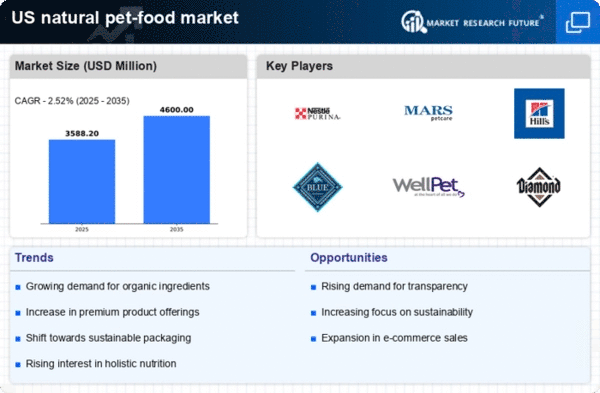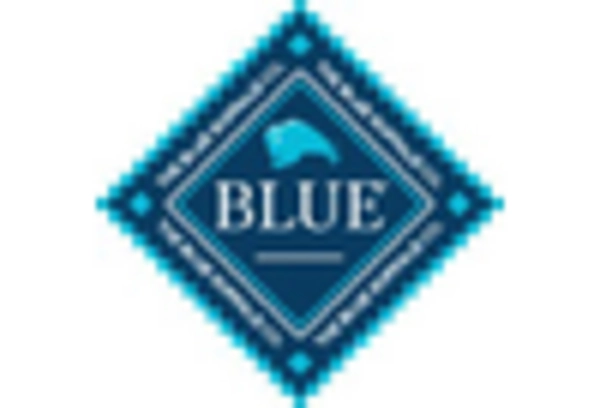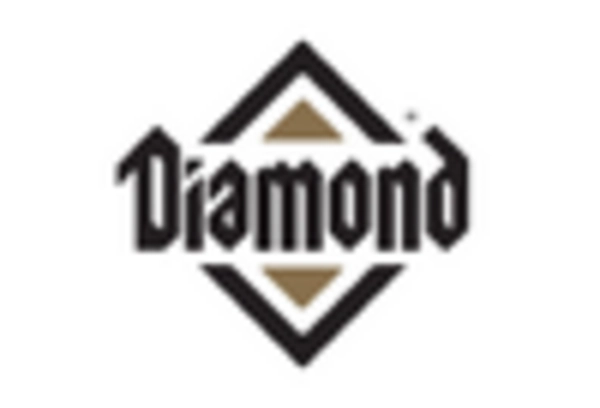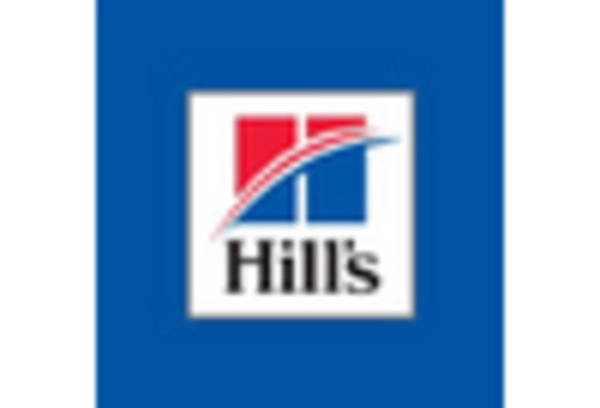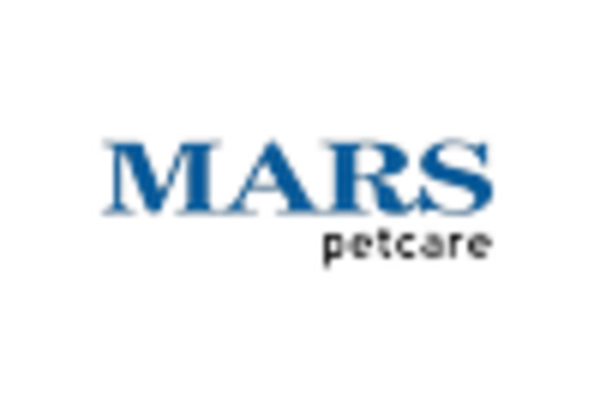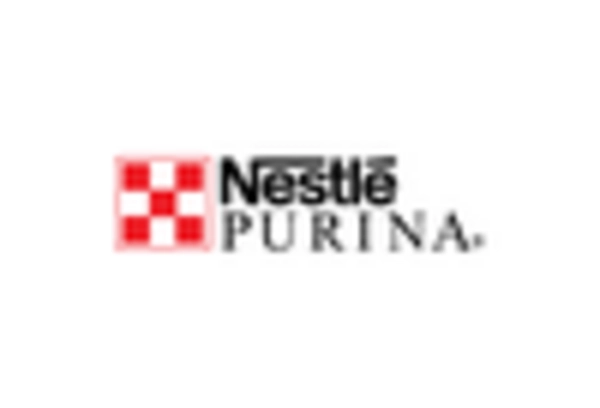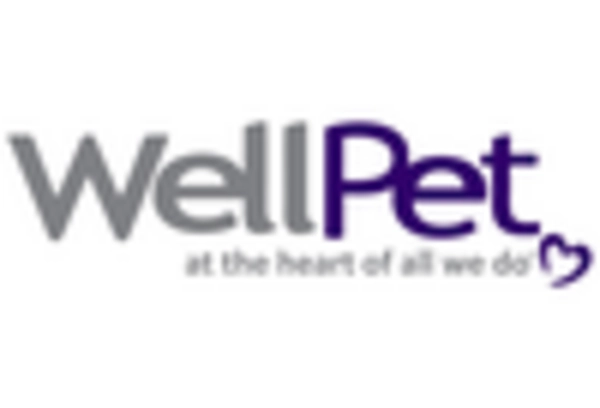Rising Pet Ownership
The natural pet-food market is experiencing a notable surge in pet ownership across the United States. Recent data indicates that approximately 70% of households own a pet, which translates to around 90 million homes. This increase in pet ownership correlates with a growing demand for high-quality, natural food options. Pet owners are increasingly seeking products that align with their values, particularly those that emphasize health and sustainability. As a result, the natural pet-food market is likely to benefit from this trend, as consumers prioritize nutrition and ingredient transparency. Furthermore, the rise in pet ownership is expected to drive sales, with the market projected to reach $20 billion by 2026, reflecting a compound annual growth rate (CAGR) of 8%.
Growth of Specialty Pet Stores
The natural pet-food market is witnessing a significant expansion of specialty pet stores, which cater specifically to the needs of health-conscious pet owners. These stores often provide a curated selection of natural and organic pet food options, appealing to consumers seeking high-quality products. The rise of specialty retailers is indicative of a broader trend towards personalized shopping experiences, where pet owners can receive tailored advice and recommendations. Data suggests that sales in specialty pet stores have increased by approximately 15% over the past year, reflecting a shift in consumer preferences. As these stores continue to proliferate, they are likely to play a pivotal role in driving growth within the natural pet-food market.
Consumer Awareness of Ingredients
In the natural pet-food market, there is a growing consumer awareness regarding the ingredients used in pet food. Pet owners are becoming more discerning, often scrutinizing labels for natural and organic components. This trend is driven by a desire to ensure the health and well-being of their pets, as well as a broader societal shift towards clean eating. Approximately 60% of pet owners express a preference for foods that contain recognizable ingredients, which has led to an increase in demand for products that are free from artificial additives and fillers. Consequently, brands that prioritize transparency and quality in their formulations are likely to gain a competitive edge in the natural pet-food market, potentially capturing a larger share of the market.
Sustainability and Ethical Sourcing
Sustainability has emerged as a pivotal driver in the natural pet-food market. Consumers are increasingly concerned about the environmental impact of their purchasing decisions, leading to a preference for brands that emphasize ethical sourcing and sustainable practices. This trend is reflected in the growing popularity of products that utilize responsibly sourced ingredients and eco-friendly packaging. Research indicates that around 55% of pet owners are willing to pay a premium for sustainable pet food options. As a result, companies that adopt sustainable practices may not only enhance their brand image but also tap into a lucrative segment of the market. The natural pet-food market is likely to see continued growth as consumers align their purchasing habits with their values.
Influence of Veterinary Recommendations
Veterinary recommendations play a crucial role in shaping consumer choices within the natural pet-food market. Many pet owners rely on their veterinarians for guidance on nutrition, particularly when it comes to selecting high-quality food options. As veterinarians increasingly advocate for natural and holistic diets, this trend is likely to influence purchasing behavior. Studies suggest that approximately 70% of pet owners trust their veterinarian's advice regarding pet food, which underscores the importance of building relationships with veterinary professionals. Brands that collaborate with veterinarians to promote their products may find increased credibility and trust among consumers, thereby enhancing their position in the natural pet-food market.


